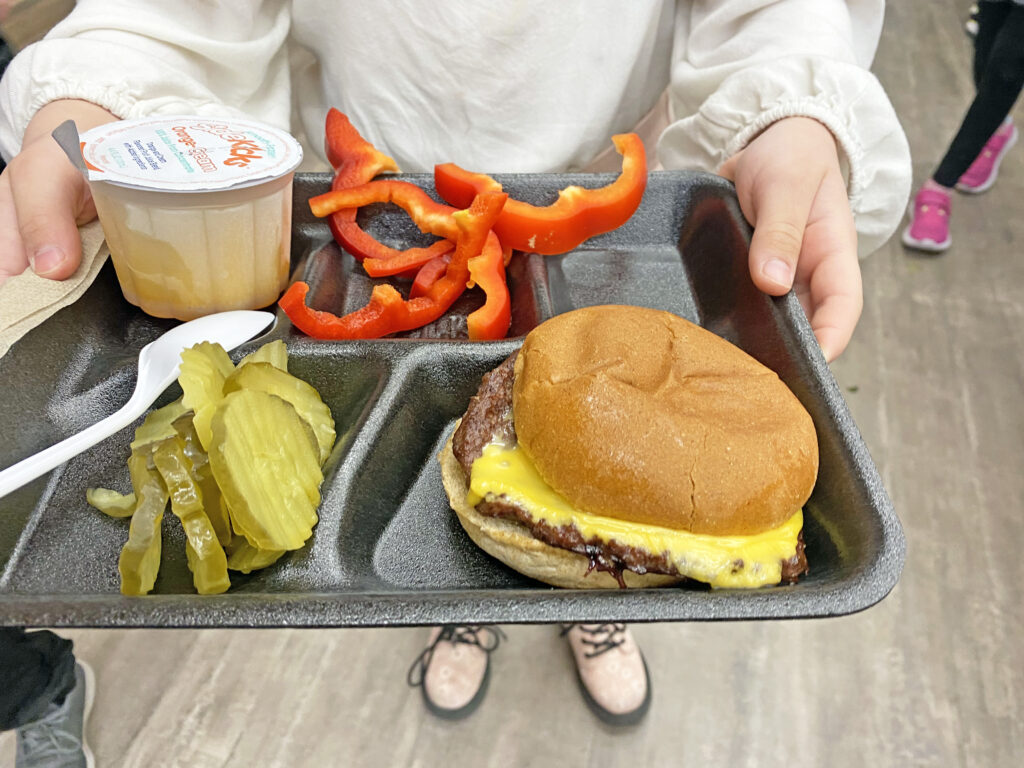Moorhead Public Schools
On the first Thursday of every month, lunches across the Moorhead Area Public School district feature proteins and produce from Minnesota farms and ranches. These monthly events, known as “Minnesota Thursdays,” are a cornerstone of the Food Services team’s continuing efforts to provide students with food sourced from local and regional producers.
March’s Minnesota Thursday featured coleslaw made from local produce. The freshness of the ingredients encouraged many students across the district to try the side dish for the first time.
District kitchens also prepared cheeseburgers from Rancher’s Legacy in Vadnais Heights.
“The feedback that our staff got from the kids is that they were the best burgers they ever tasted,” said Ashley Schneider, MAPS Director of Food Services. “That’s what we get excited about and that’s our mission: creating delicious, local food; supporting our community and our farmers; and educating our students about where food comes from.
“We’re in educational facilities, so we do our part in the lunchroom to help kids learn where food comes from. We hope that with what they learn, they respect food, think about food waste and be mindful of what they’re eating each day.”
Food education doesn’t stop with the menu, either. Guest farmers also interact with students. In October, Bjorn Solberg from Hugh’s Gardens in Halstad spoke with students in their lunchrooms about growing potatoes. This personal interaction furthers the educational connection with their meal.
With Moorhead sitting just across the Red River from North Dakota, Food Services also looks to our neighbors to the west for regionally sourced food. North Dakota-based Cloverdale Meats, for example, supplies MAPS with hot dogs.
With a district of over 7,300 students, finding regional producers that can provide food at such a large scale can be challenging.
“Occasionally, we encounter smaller farms or ranches in the area that want to work with us but their size limits their ability to provide us with adequate quantities,” explained Schneider. “We still want to partner with them and support local agriculture, so we will buy what they can provide and supplement with products from larger distributors.”
Using ingredients from local producers also allows the school kitchens to make more recipes “from scratch,” meaning that students get minimally processed meals more frequently.
Farm-to-school meals not only provide students with fresh and nutritious food but also foster healthy eating habits by showcasing the quality and flavor of locally sourced ingredients. These initiatives’ strong partnerships with local farmers support the regional economy and promote sustainable food systems. More information on Food Services can be found on the district website at isd152.org.


